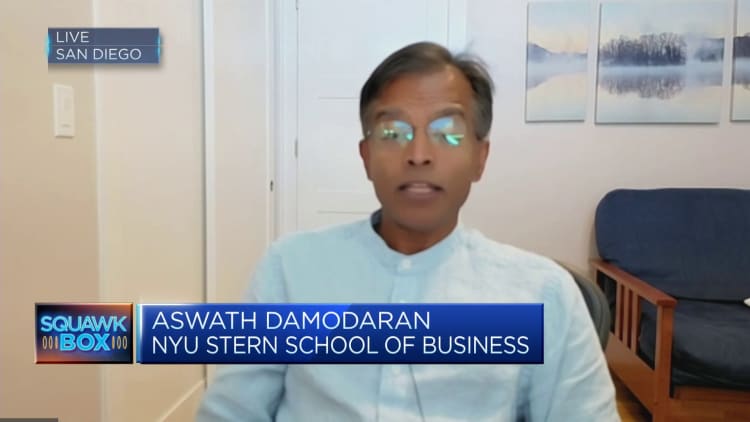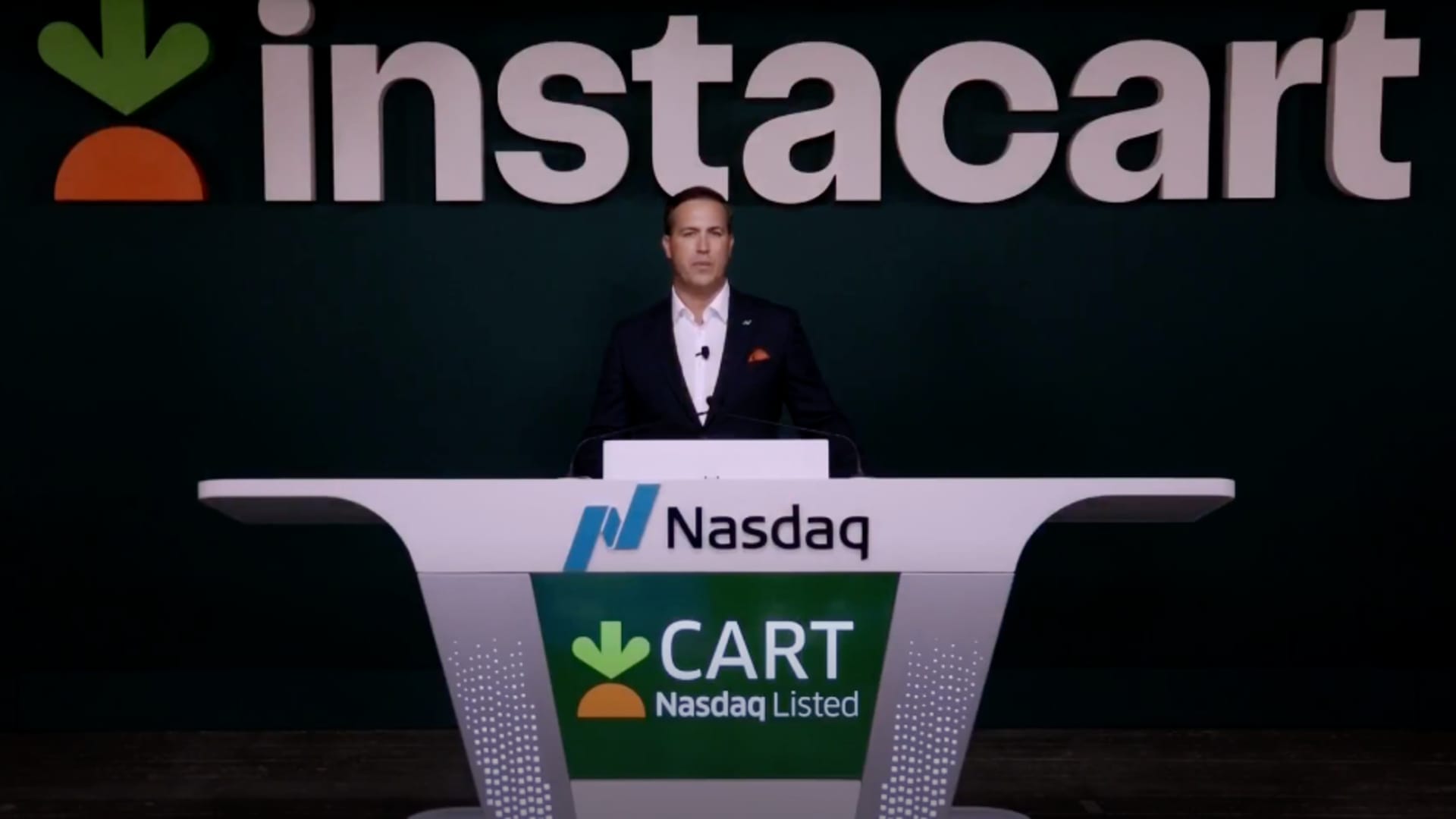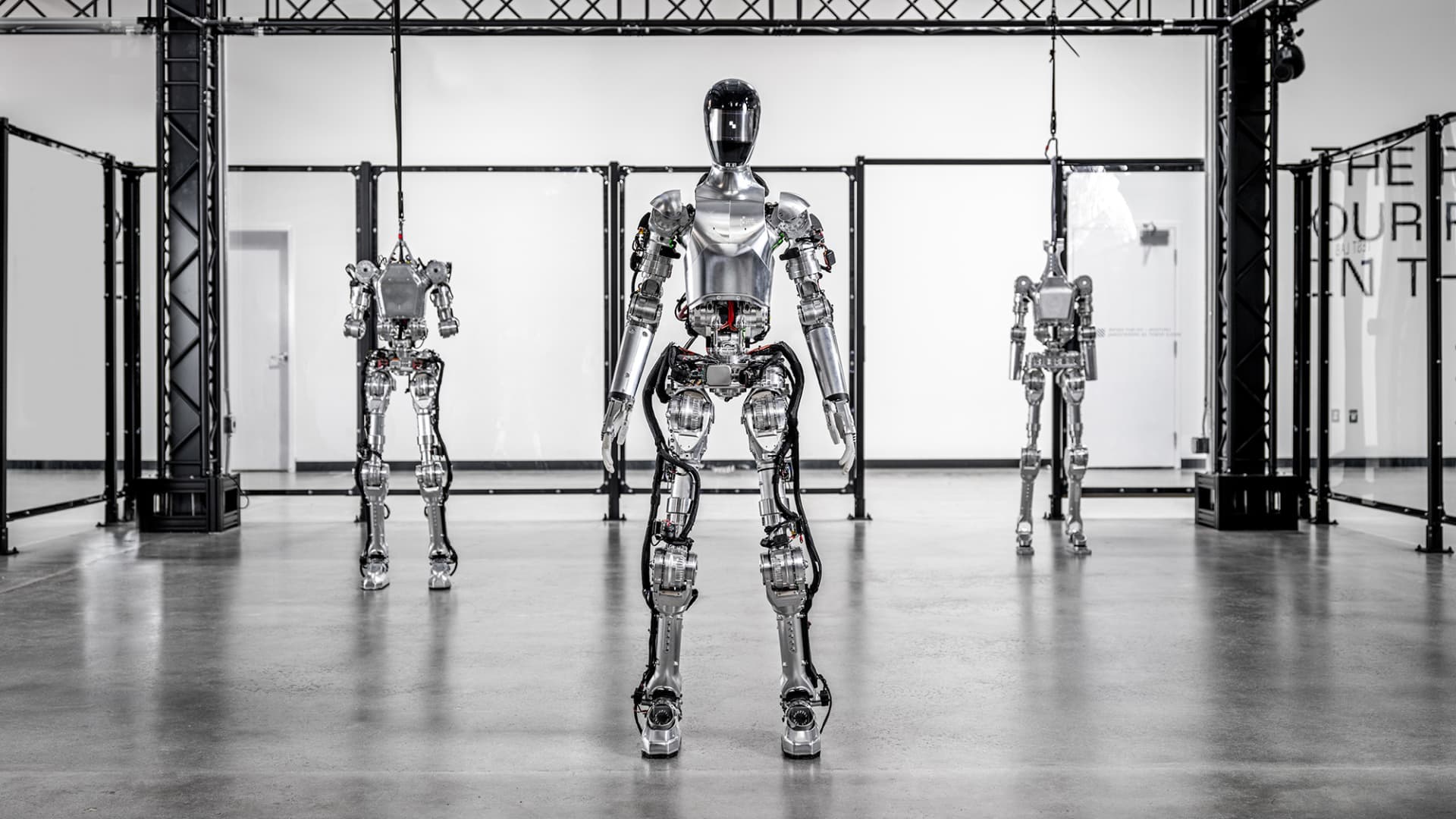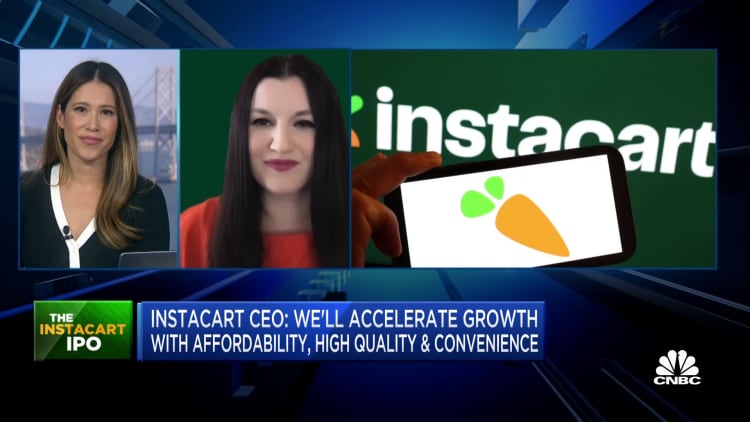
Instacart celebrates their IPO at the Nasdaq on Sept. 19th, 2023.
Courtesy: Nasdaq
After a 21-month tech IPO freeze, the market has cracked opened in the past week. But the early results can’t be encouraging to any late-stage startups lingering on the sidelines.
Chip designer Arm debuted last Thursday, followed by grocery delivery company Instacart this Tuesday, and cloud software vendor Klaviyo the following day. They’re three very different companies in disparate parts of the tech sector, but Wall Street’s reaction has been consistent.
Investors who bought at the IPO price made money if they sold right away. Just about everyone else is in the red. That’s fine if a company’s goal is just to be public and create the opportunity for employees and early investors to get liquidity. But for most companies in the pipeline, particularly those with sufficient capital on their balance sheet to stay private, it offers little allure.
“People are worried about valuations,” said Eric Juergens, a partner at law firm Debevoise & Plimpton who focuses on capital markets and private equity. “Seeing how those companies trade over the next couple months will be important to see how IPO markets and equity markets more generally are valuing those companies and how they may value comparable companies looking to go public.”
Juergens said, based on his conversations with companies, the market is likely to open up further in the first half of next year simply because of pressure from investors and employees as well as financing requirements.
“At some point companies need to go public, whether it’s a PE fund looking to exit or employees looking for liquidity or just the need to raise capital in a high interest rate environment,” he said.
Arm, which is controlled by Japan’s SoftBank, saw its shares jump 25% in their first day of trading to close at $63.59. Every day since then, the stock has fallen, and it closed on Thursday at $52.16, narrowly above the $51 IPO price.
Instacart popped 40% immediately after selling shares at $30. But by the end of its first day of trading, it was up just 12%, and that gain was practically all wiped out on day two. The stock rose 1.8% on Thursday to close at $30.65.
Klaviyo rose 23% based on its first trade on Wednesday, before selling off throughout the day to close at $32.76, just 9% higher than its IPO price. It rose 2.9% on Thursday to $33.72.
None of these companies were expecting, or even hoping for, a big pop. In 2020 and 2021, during the frothy zero interest rate days, first-day jumps were so dramatic that bankers were criticized for handing out free money to their buyside buddies, and companies were slammed for leaving too much cash on the table.
But the lack of excitement over the past week — amounting to a collective “meh” across Wall Street — is certainly not the desired outcome either.
Instacart CEO Fidji Simo acknowledged that her company’s IPO wasn’t about trying to optimize pricing for the company. Instacart only sold the equivalent of 5% of outstanding shares in the offering, with co-founders, early employees, former staffers and other existing investors selling another 3%.
“We felt that it was really important to give our employees liquidity,” Simo told CNBC’s Deirdre Bosa in an interview after the offering. “This IPO is not about raising money for us. It’s really about making sure that all employees can have liquidity on stocks that they work very hard for. We weren’t looking for a perfect market window.”
Odds are the window was never going to be perfect for Instacart. At the tech market peak in 2021, Instacart raised capital at a $39 billion valuation, or $125 a share, from top-tier investors including Sequoia Capital, Andreessen Horowitz and T. Rowe Price.
During last year’s market plunge, Instacart had to slash its valuation multiple times and switch from growth to profit mode to make sure it could generate cash as interest rates were rising and investors were retreating from risk.
Growing into valuation
The combination of the Covid delivery boom, low interest rates and a decade-long bull market in tech drove Instacart and other internet, software and e-commerce businesses to unsustainable heights. Now it’s just a matter of when they take their medicine.
Klaviyo, which provides marketing automation technology to businesses, never got as overheated as many others in the industry, raising at a peak valuation of $9.5 billion in 2021. Its IPO valuation was just below that, and CEO Andrew Bialecki told CNBC that the company wasn’t under pressure to go public.
“We’ve got a lot of momentum as a business. Now is a great time for us to go public especially as we move up in the enterprise,” Bialecki said. “There really wasn’t any pressure at all.”
Klaviyo’s revenue increased 51% in the latest quarter from a year earlier to $165 million, and the company swung to profitability, generating almost $11 million in net income after losing $11.7 million in the same period the prior year.
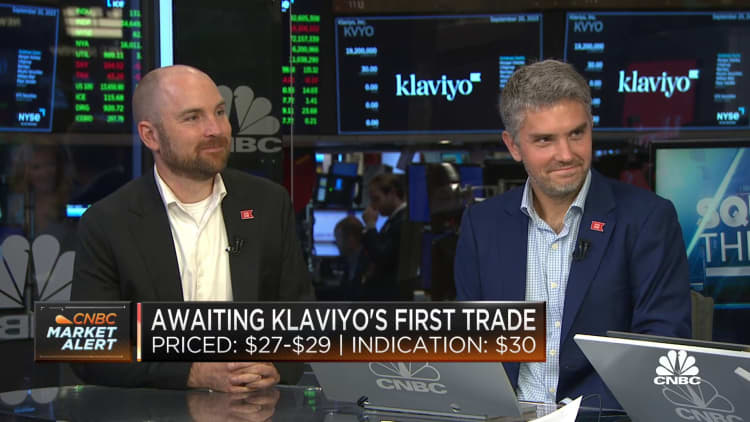
Even though it avoided a major down round, Klaviyo had to increase its revenue by about 150% over two years and turn profitable to roughly keep its valuation.
“We think companies should be profitable,” Bialecki said. “That way you can be in control of your own destiny.”
While profitability is great for showing sustainability, it isn’t what tech investors cared about during the record IPO years of 2020 and 2021. Valuations were based on a multiple to future sales at the expense of potential earnings.
Cloud software and infrastructure businesses were in the midst of a landgrab at the time. Venture firms and large asset managers were subsidizing their growth, encouraging them to go big on sales reps and burn piles of cash to get their products in customers’ hands. On the consumer side, startups raised hundreds of millions of dollars to pour into advertising and, in the case of gig economy companies like Instacart, to entice contract workers to choose them over the competition.
Instacart was proactive in pulling down its valuation to reset investor and employee expectations. Klaviyo grew into its lofty price. Among high-valued companies that are still private, payments software developer Stripe has cut its valuation by almost half to $50 billion, and design software startup Canva lowered its valuation in a secondary transaction by 36% to $25.5 billion.
Private equity firms and venture capitalists are in the business of profiting on their investments, so eventually their portfolio companies need to hit the public market or get acquired. But for founders and management teams, being public means a potentially volatile stock price and a need to update investors every quarter.
Given how Wall Street has received the first notable tech IPOs since late 2021, there may not be a ton of reward for all that hassle.
Still, Aswarth Damodaran, a professor at New York University’s Stern School of Business, said that with all the skepticism in the market, the latest IPOs are performing OK because there was a fear they could drop 20% to 25% out of the gate.
“At one level the people pushing these companies are probably heaving a sigh of relief because there was a very real chance of catastrophe on these companies,” Damodaran told CNBC’s “Squawk Box” on Wednesday. “I have a feeling it will take a week or two for this to play out. But if the stock price stays above the offer price two weeks from now, I think these companies will all view that as a win.”
WATCH: NYU professor explains why he doesn’t trust SoftBank-backed IPOs
